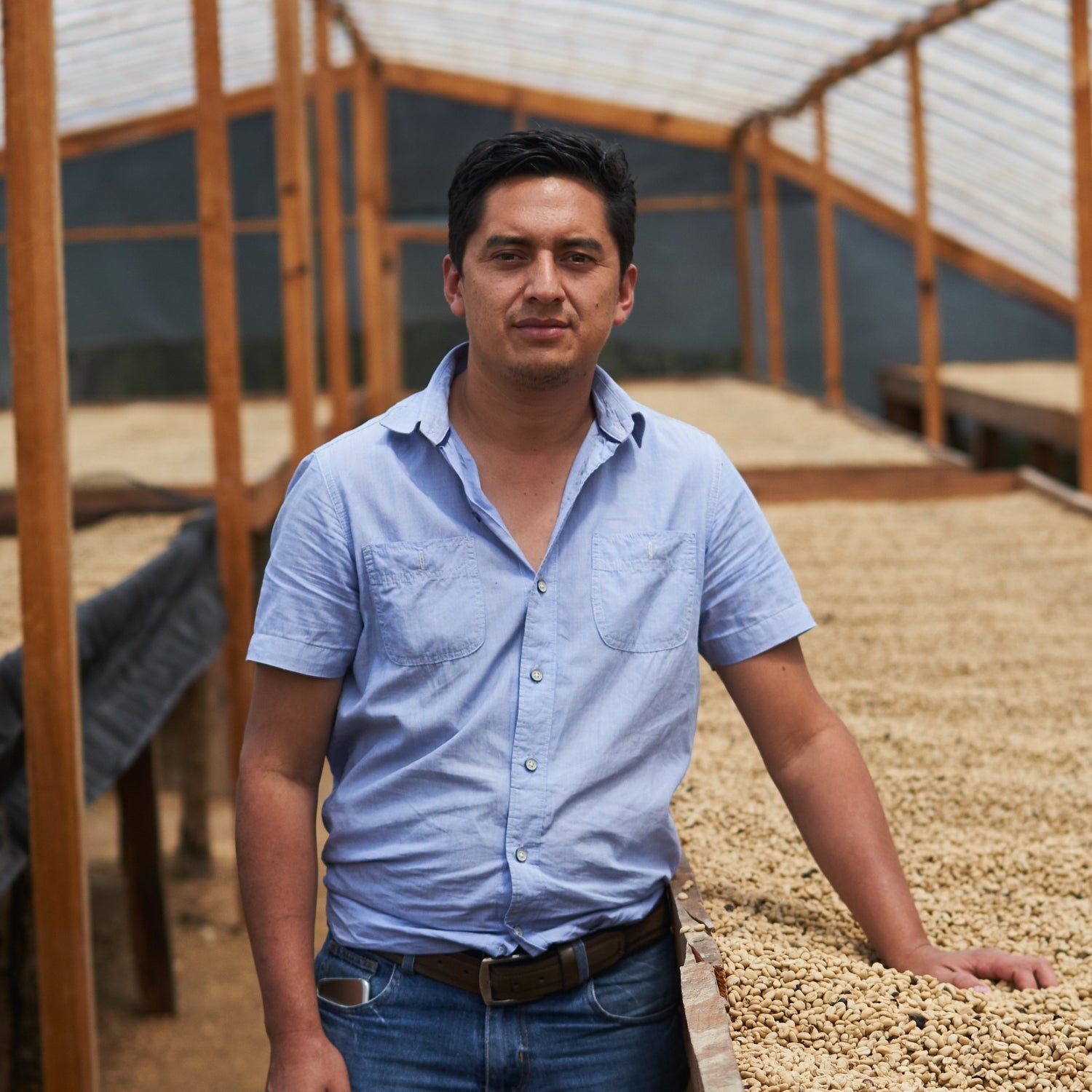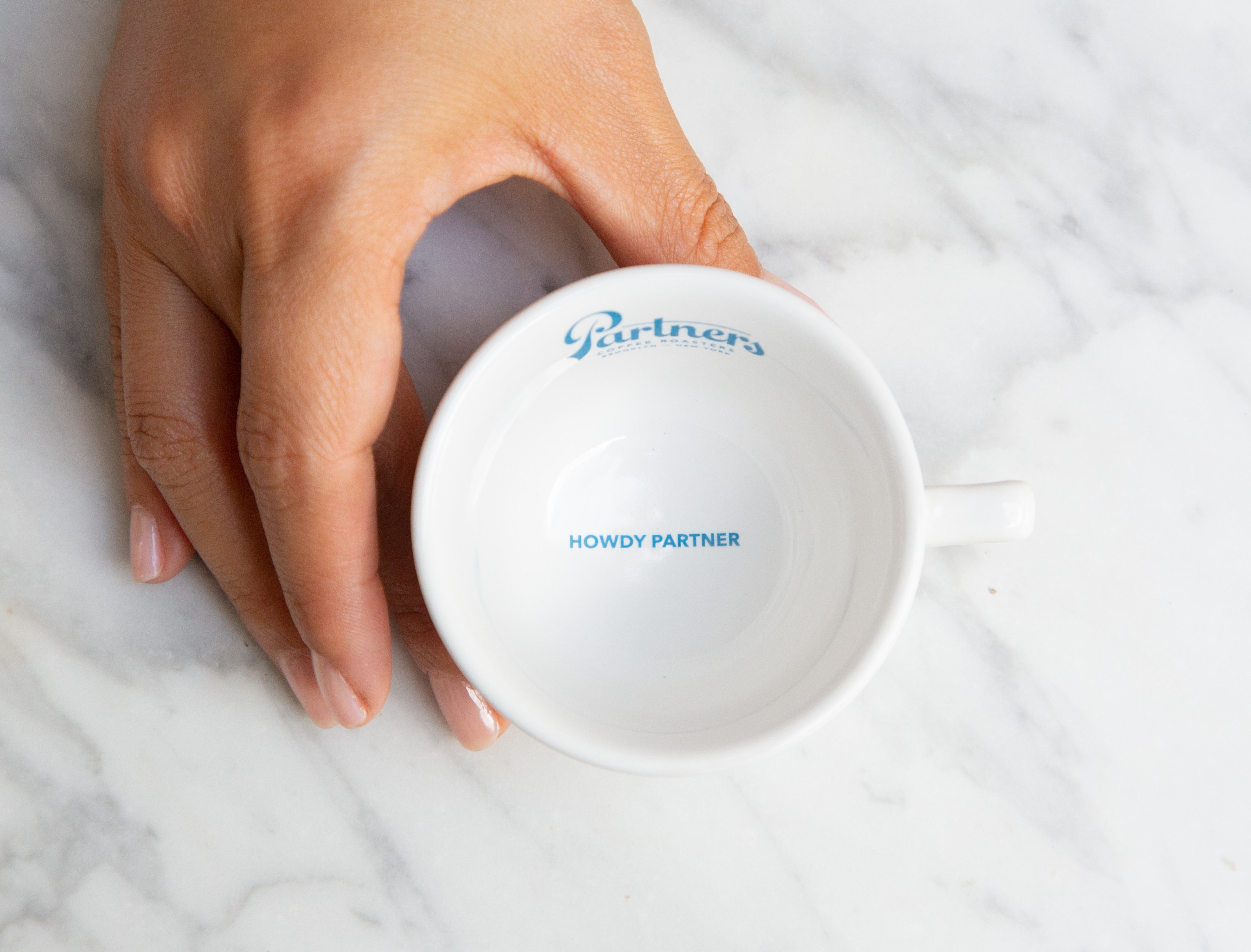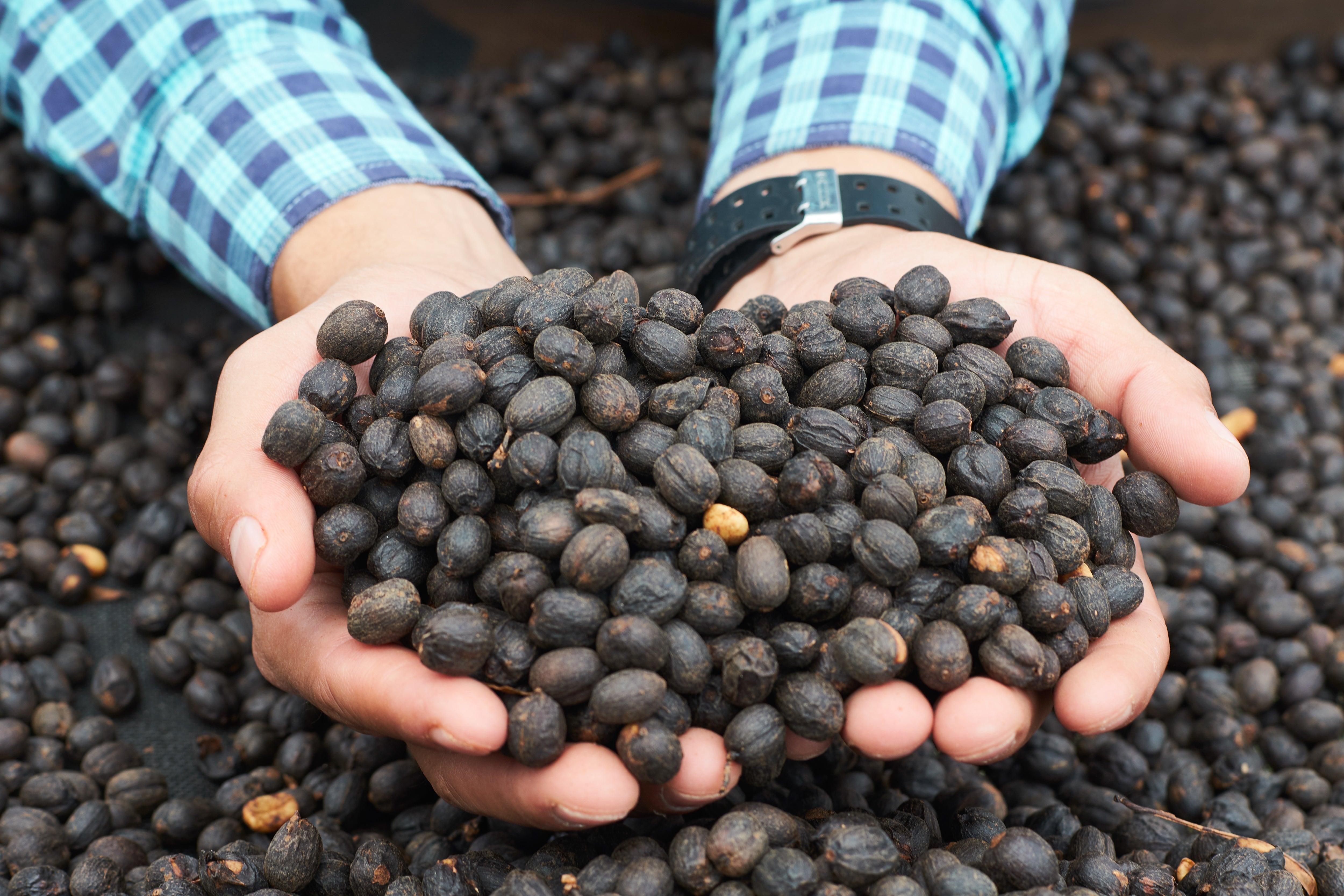Finca San Francisco is one of three parcels of land inherited by Roger Domínguez from his father. Like its neighbor, Finca Las Flores, it comprises around 4 hectares at 1,300 meters, an optimal elevation for the Montesillos range of western Honduras.
The farm is mostly planted with three varieties—bourbon, caturra, and catuaí—along with some more recent additions like gesha and parainema. This lot in particular is entirely red bourbon, which we've come to prefer over the years for its consistent depth and body when processed as a natural.
The natural process is the oldest and most rudimentary processing method for coffee, but a challenging one to carry out at the highest standard of quality. Naturals have become increasingly popular in Honduras in recent years, with many of the best coming from Roger's community of Marcala.
Producing a coffee like this begins with the most exacting standards at harvest time. Perfectly ripe fruits are hand-picked and laid out in thin layers on raised platforms to sun-dry for several weeks. During this time the coffee is carefully and very routinely turned. Afterwards, the fruit is sent to a dry-mill where it is hulled to remove the dried fruit husk and parchment. Roger takes an additional step of sending samples to be analyzed for quality by IHCAFE, Honduras's national coffee growers' federation.
Honduras produces quite a lot of coffee—ranking fifth globally and first among Central American countries—but has historically lacked the infrastructure and processing facilities necessary to meet its clear potential. In the last 25 years the country has made incredible progress in developing its specialty coffee sector thanks to the talent and determination of its current generation of young farmers like Roger.








Leave a comment
This site is protected by hCaptcha and the hCaptcha Privacy Policy and Terms of Service apply.